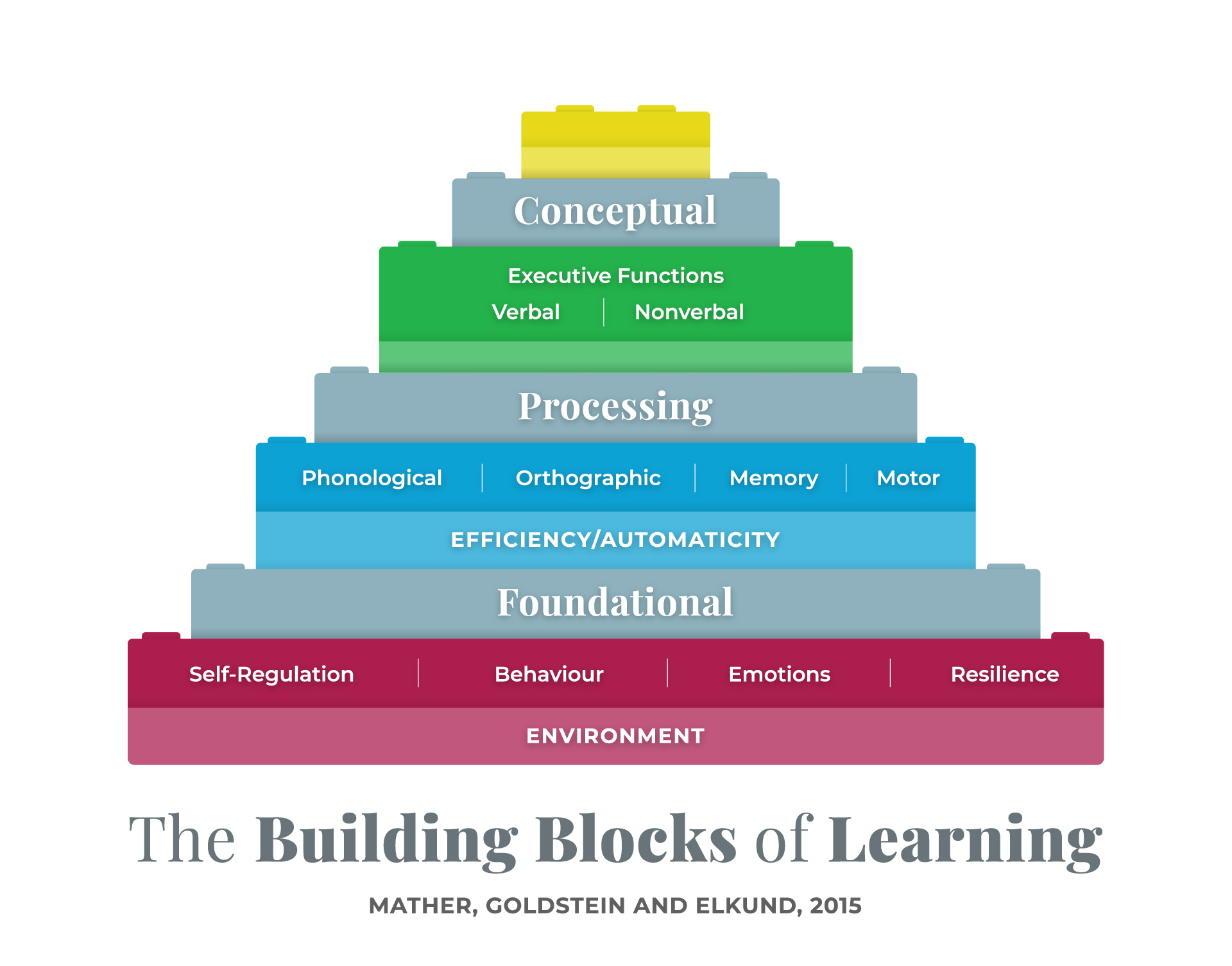Types of Learning Disabilites
As Individual as Thumbprints
There are various definitions and criteria for identifying a learning disability. However, “Learning Disabilities” is often an umbrella term describing a number of other, more specific learning difficulties.
“The diagnosis of a learning disability, now referred to as a Specific Learning Disorder… requires consistent difficulties learning and using academic skills (in reading, writing, spelling, and/or math) during school-age years, below what is expected given a child’s age.” (Canadian Psychological Association, 2015)

Although learning disabilities are as individual as thumbprints, most disabilities fall into the three basic categories: dyslexia, dysgraphia, and dyscalculia.

Dyslexia
Dyslexia: “difficulty with words”
“Dys” means “difficulty with” and “lexia” means “words”, thus “difficulty with words”.
Originally the term “Dyslexia” referred to a specific learning deficit that hindered a person’s ability to read. More recently, however, it has been used as a general term referring to the broad category of language deficits that often includes the ability to hear and manipulate sounds in words as well as the ability to read and spell words accurately and fluently. When breakdowns occur in these foundational reading skills, dyslexic students often struggle to understand what they read as well as develop vocabulary at a slower rate.
Dysgraphia
Dysgraphia: “difficulty with writing”
“Dys” means “difficulty with” and “graphia” means “writing”, thus “difficulty with writing”.
The term dysgraphia refers to more than simply having poor handwriting. This term refers to those who struggle with the motor skills necessary to write thoughts on paper, spelling, and the thinking skills needed for vocabulary retrieval, clarity of thought, grammar, and memory.


Dyscalculia
Dyscalculia: “difficulty with calculations and mathematics”
“Dys” means “difficulty with” and “calculia” means “calculations and mathematics”, thus “difficulty with calculations and mathematics”.
This term refers to those who struggle with basic number sense and early number concepts as well as have difficulties with math calculations and math reasoning.
How Can We Support Students with Learning Disabilities?
A few areas of difficulty can have a devastating effect on your child’s ability to learn, making the education process a frustrating experience. They may seem lazy or disconnected, but the truth is that what we see is often a symptom of many possible underlying issues.
There are two basic approaches to dealing with learning disabilities: accommodation and direct intervention.
Accommodation
The first and most common approach is accommodation – helping students work around their deficit areas by using their strengths. In an academic setting, this usually takes the form of tutoring and classroom modifications, such as untimed tests and reduced workload. Accommodation allows students to succeed with the help of others, but it still leaves them limited in what they can do on their own.
Direct Intervention
The second most common approach is direct intervention – helping students strengthen their areas of deficit so they are no longer held back by them. Teaching students HOW to learn allows students the eventual freedom of succeeding on their own as independent learners. Direct intervention, through NILD Educational Therapy®, and the resulting competence and confidence, allow students to gain the skills needed to become independent learners for a lifetime.
The Building Blocks of Learning
Your child needs to have strong building blocks in place in order to perform well academically. Sometimes this foundation feels like it’s shifting, and the wall is crumbling. Let’s help your child build a strong foundation, one block at a time.

This model (Mather, Goldstein & Eklund, 2015) turns an overwhelming and complex process of learning into an organized set of skills. It creates a clear and organized way of understanding the process of learning and all factors that affect a student’s success.
The four foundational blocks offer the support system for all learning to occur. The four processing blocks are the skills that require our students to perceive and process information through their senses. The conceptual blocks help students understand relationships and apply the concepts as they engage in academic tasks. And finally, executive function skills sit at the top of this pyramid.
Does your child need support?
NILD Educational Therapy will build a firm foundational support for your child!
